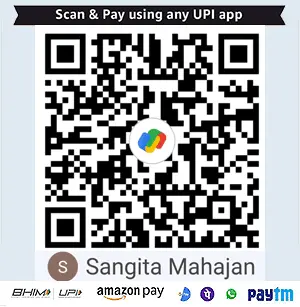Advanced Java programming
Learn Java: Advanced programming from certified trainer in Pune India
Duration: 30 hrs
Trainer: Sangita, MCT, 25+ yrs exp.»
Delivery: Instructor-led Shared, 1 to 1 or offline
Shared batch: ₹8500 ($155 USD)
1 to 1: ₹25500 ($465 USD)

This course is the next level of the - Core Java programming, and is designed for individuals who possess a strong foundation in the Java Programming language.
The course covers the remaining advanced java programming components, such as JDBC, Swing, JFC, Servlets, JSP, etc.
Prerequisites
- Before joining this course, you should have completed the Core Java programming training
- Student should:
- Be competent in creating programs in java programming language
- Create and edit text files using a text editor
- Understand object-oriented principles
View Demo:
Key Features
Real-time 1 to 1 interaction
Download short notes
Global certification guidance
Get an attendance certificate

Syllabus
Please check the syllabus tab above. ☝This course covers following topics:
|
|


